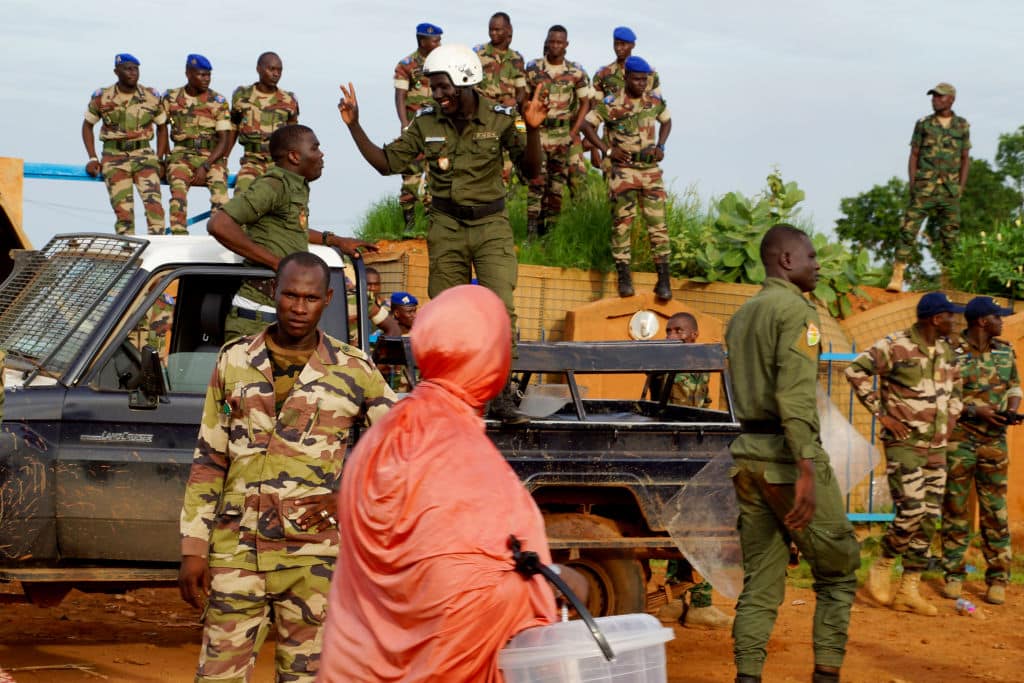A deadly attack in Niger claims the lives of 17 soldiers, raising concerns of escalating jihadist activity following the recent overthrow of President Mohamed Bazoum. Supporters of the military junta face the dual threat of ECOWAS military intervention and internal extremism, as a new militia mobilizes to back the nation’s armed forces.
At least 17 soldiers from the Nigerien military were killed in an attack on Tuesday, potentially signaling an escalation in jihadist activity in a country that has long been considered a partner to the West in combating extremism in the Sahel region. This attack is the first of its kind since Niger’s democratically elected President, Mohamed Bazoum, was overthrown by a military junta in late July. The Nigerien junta stated that at least 100 attackers were killed in retaliation, although this claim could not be independently confirmed.
Supporters of the junta, condemned by the Economic Community of West African States (ECOWAS), seem to have been motivated by the threat of military intervention by ECOWAS, as well as the internal extremist threat. Reports suggest the emergence of a new militia, the Volunteers for the Defense of Niger, which is recruiting volunteers to support the nation’s armed forces.
ECOWAS, which denounced the attack on the Nigerien security forces, continues to call for the restoration of democratic order. “ECOWAS calls on the CNSP-military leadership in Niger to restore constitutional order in order to focus on the security of the increasingly fragile country,” stated the body in a recent release.
Officials of the bloc also attended an African Union (AU) meeting on Monday in Addis Ababa to discuss the situation in Niger. The situation seems unlikely to resolve soon, given the mixed signals from many of the involved parties. The junta recently expressed openness to diplomatic discussions but seemed to reverse its stance last Sunday by announcing the intention to charge captive President Bazoum with high treason.
Both ECOWAS and the AU condemned the legal threat against Bazoum, but this incident appears to have stalled further talks. The newly appointed US Ambassador to Niger, Kathleen FitzGibbon, is expected to arrive in the capital city of Niamey this week, which could potentially lead to diplomatic progress. However, as these efforts stall, the stability of the region remains precariously fractured.
